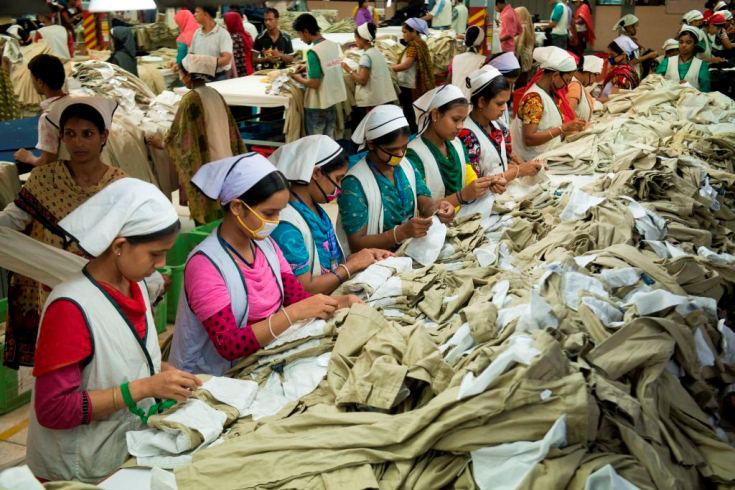World Bank says Bangladesh’s GDP growth decelerates to 6 pct
The Bangladesh Development Update October 2013 notes that GDP growth in FY13 decelerated, for the second year in a row, to six percent. Disruptions caused by political strife, deepening political tensions relating to the impending political transition and the inadequate improvements in the provision of power, gas and infrastructure were the key factors in the growth slowdown.
Growth came largely from construction and manufacturing while services also made significant contribution. The slower growth reflects decline in both agricultural and service sector growth. Agricultural output growth weakened to 2.2% in FY13 from 3.1% in FY12, primarily because of stagnant cereal crop production. Services growth declined from 6.3% in FY12 to 6.06% in FY13, suffering most from the direct impact of strikes and political violence.
These combined to weakening investor confidence leading to 1.2% decline in the real private investment rate. However, total exports increased by 11.2% in FY13, compared with 5.9% growth in FY12 and inward remittances grew by 12.6%, compared with 10.2% in FY12.
Inflation: Inflation decelerated but remained high with annual average inflation declining from 8.7% in FY12 to 6.8% in FY13. This reflects a decline in both food and non-food prices. Softer international prices helped reduce food inflation. Increased production, declining demand from large importers, and increasing food stocks in international markets exerted downward pressures on international prices. The conduct of monetary policy improved remarkably in FY13, which helped reduce non-food price increases.
External balance: A sharp improvement in the Balance of Payment position from an overall $494 million surplus in FY12 to a surplus of $5.1 billion in FY13 due to large increases in current and financial account surplus created pressure on the exchange rate to appreciate. Bangladesh Bank intervened frequently to prevent a large appreciation, leading to historic highs in building up official foreign exchange reserves. The current reserve level is adequate, but not excessive.
Financial system: The financial system remains under stress and capital market activities have been weak. Several financial scams and resultant loan defaults in the state-owned commercial banks (SCBs) moved them into a position of insolvency. Capital market activities remained generally weak throughout FY13.
Fiscal policy: The overall fiscal deficit (excluding grants) stands at 4.3% of GDP and below the five percent budget target. The FY14 budget targets a modest deficit of 4.6% of GDP and a domestic financing target of 2.9%, as the authorities confront a host of domestic challenges ranging from a rising incidence of road traffic congestions, shortages of power, water and gas, to the need for higher welfare spending to protect the poor and the vulnerable.
The dynamic ready-made garments sector has been a key contributor to Bangladesh’s strong economic performance and to women’s empowerment. But this industry is now at a critical crossroads, as recent high-fatality factory fires and a building collapse have exposed the hazards workers face and also severely tarnished the industry’s image: Bangladesh must act now to articulate and enforce improved standards for building safety and worker health and security, so that the garments industry can continue to grow and other industries can follow its example. ![]()
Johannes Zutt
Country Director, World Bank Bangladesh
